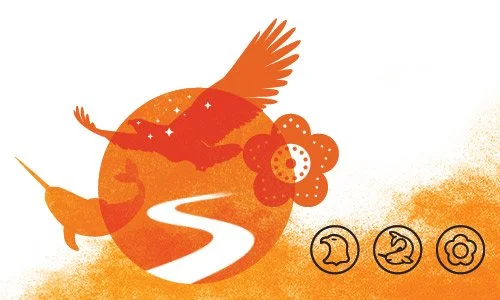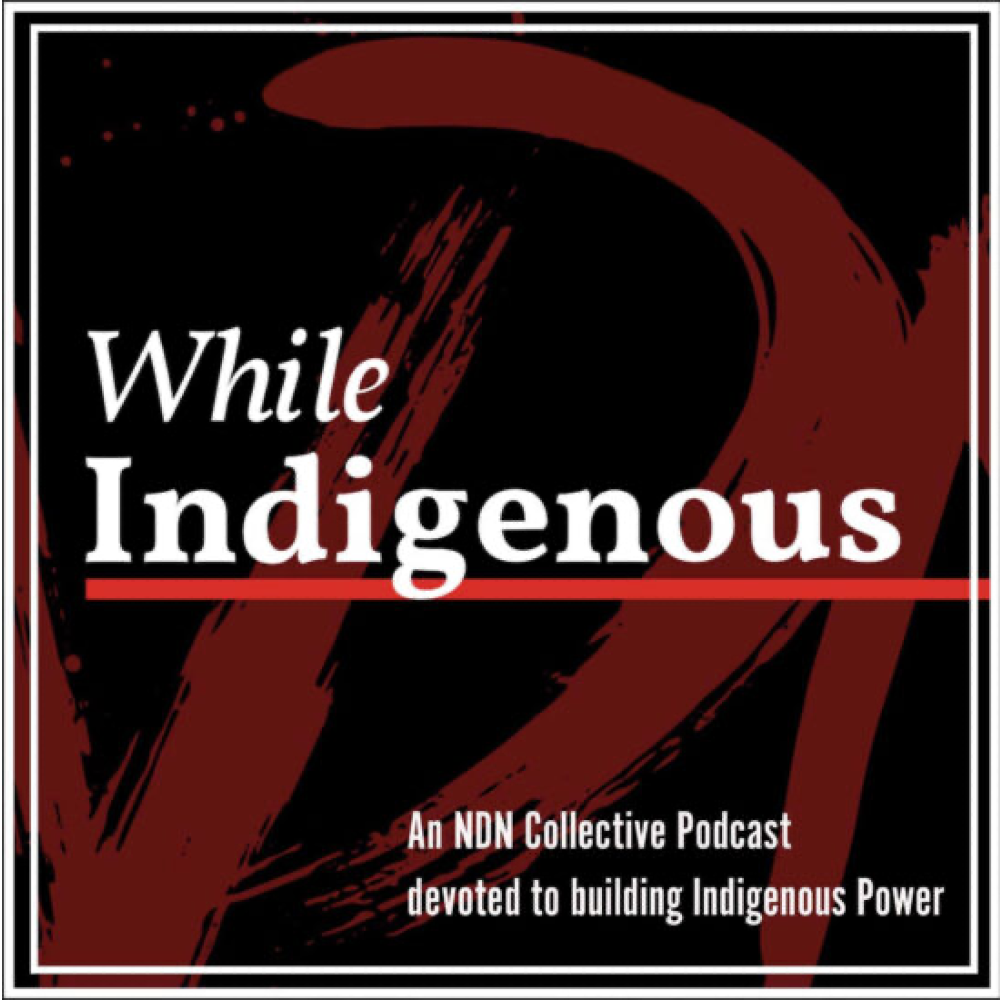Empty Spaces
Reimagining James Fenimore Cooper’s nineteenth-century text The Last of the Mohicans from the contemporary perspective of an urban Nisga’a person whose relationship to land and traditional knowledge was severed by colonial violence, Jordan Abel explores what it means to be Indigenous without access to familial territory and complicates popular understandings about Indigenous storytelling. Engaging the land through fiction and metaphor, the successive chapters of Empty Spaces move toward an eerie, looping, and atmospheric rendering of place that evolves despite the violent and reckless histories of North America. The result is a bold and profound new vision of history that decenters human perception and forgoes Westernized ways of seeing.
Jordan Abel’s extraordinary debut work of fiction grows out of his groundbreaking visual compositions in NISHGA, which integrated descriptions of the landscape from Cooper’s settler classic into his father's traditional Nisga'a artwork. In Empty Spaces, Abel reinscribes those words on the page itself, subjecting them to bold rewritings and inviting us to come to a crucial understanding: that the land knows everything that can and will happen, even as our world lurches toward uncertainty.
Where to find it:
Wînipêk
Niigaan Sinclair has been called provocative, revolutionary, and one of this country's most influential thinkers on the issues impacting Indigenous cultures, communities, and reconciliation in Canada. In his debut collection of stories, observations, and thoughts about Winnipeg, the place he calls "ground zero" of Canada's future, read about the complex history and contributions of this place alongside the radical solutions to injustice and violence found here, presenting solutions for a country that has forgotten principles of treaty and inclusivity. It is here, in the place where Canada began—where the land, water, people, and animals meet— that a path "from the centre" is happening for all to see.
At a crucial and fragile moment in Canada's long history with Indigenous peoples, one of our most essential writers begins at the centre, capturing a web spanning centuries of community, art, and resistance.
Based on years' worth of columns, Niigaan Sinclair delivers a defining essay collection on the resilience of Indigenous peoples. Here, we meet the creators, leaders, and everyday people preserving the beauty of their heritage one day at a time. But we also meet the ugliest side of colonialism, the Indian Act, and the communities who suffer most from its atrocities.
Sinclair uses the story of Winnipeg to illuminate the reality of Indigenous life all over what is called Canada. This is a book that demands change and celebrates those fighting for it, that reminds us of what must be reconciled and holds accountable those who must do the work. It's a book that reminds us of the power that comes from loving a place, even as that place is violently taken away from you, and the magic of fighting your way back to it.
Bones of Crows
Removed from their family home and forced into Canada’s residential school system, Cree musical prodigy Aline and her siblings are plunged into a struggle for survival. Bones of Crows is Aline's journey from child to matriarch, a moving multi-generational epic of resilience, survival and the pursuit of justice.
Examine settler relations with indigenous communities
Coming to terms with the historical harms inflicted upon indigenous communities by settlers and the government and current efforts to address them is a crucial part of truth and reconciliation.
What is the Indian Act and how does it continue to oppress and cause harm?
In addition to reading the United Nations Declaration on the Rights of Indigenous Peoples and the Truth and Reconciliation Calls to Action, what other inquiries or reports can you commit to reading and acting on?
Have you heard of MMIWG and read the inquiry report? Does your community hold an event, such as Red Dress Day, to honour Missing and Murdered Indigenous Women and Girls?
What is the Origin Story of the TRC? Why is truth such an important first step before reconciliation?
Reflect on where you live
Regardless of where you live in Canada, you are on ancestral lands of one or more First Nations or indigenous communities. An important personal step towards being an active participant in truth & reconciliation is understanding your relationship to the lands on which you live and their historical and present-day connections to indigenous communities and identity.
Whose territory do you live/work/play on?
What is an Indigenous place name for the territory you live on, work in, and enjoy recreationally? What are the origins of that name and what does it say about the lands and their use? What are the origins of the settler/colonial place name?
Are you situated in Treaty territory? If so, which one and what does that mean? If you’re not in a numbered treaty territory, do you know why not?
How did settlers come to occupy the territory you live on?
What Indigenous governments – traditional and contemporary – govern the land where you live?
Who are your ancestors and where is your ancestral home? Do you know how you came to live in this country known as Canada and how you've participated in the continued settlement of these lands?
Reflect on the term “Settler”
The term “settler” can be challenging for people. Take a moment to reflect on your own understanding and relationship with the term.
Does the term "settler" make you uncomfortable? Why?
How does the term settler relate to power, agency, and choice?
Why are the descendants of enslaved Africans not considered settlers?
How might we understand migrants who have been displaced as a result of colonial systems, like war and climate crises?
How can we use the term settler without setting up a good/bad binary?
It is important to recognize that not all settlers arrived here by choice. Some came to Canada due to lack of security, displacement and other harms perpetuated by the colonial systems like slavery, wars, and climate crisis.
Learn more about the term “Settler”
Imagining a Better Future: An Introduction to Teaching and Learning about Settler Colonialism in Canada - Andrea Eidinger and Sarah York-Bertram
Settling on a Name: Names for non-Indigenous Canadians - âpihtawikosisân
Why the term ‘settler’ needs to stick - Corey Snelgrove and Klara Woldenga
Who Is a Settler, According to Indigenous and Black Scholars - Ashleigh-Rae Thomas
Conversation Starter Guide for Friends and Family
Acknowledging the colonization of Canada is a necessary conversation, and it’s one that settlers need to participate in more often. We encourage Canadians to learn more, ask questions, and start conversations with friends, family and colleagues. Here are some prompts to help you get started with your community.
Why was September 30 declared a national statutory holiday? How are you planning on using that day to support truth & reconciliation?
What is something you’ve learned about the history of Indigenous peoples and Canada?
Given the undeniable harm that is part of Canada’s history: What is something that we can do to make reparations directly to Indigenous organizations, movements, and nations?
How did you feel when you learned about thousands of unmarked children’s graves at residential schools in Canada?
Will you join me in giving One Day’s Pay this September 30 and will you invite others to do the same?
Indian Horse
An adaptation of Ojibway writer Richard Wagamese’s award-winning novel, this moving and important drama sheds light on the dark history of Canada’s boarding schools or Indigenous Residential Schools and the indomitable spirit of aboriginal people. INDIAN HORSE stars Canadian newcomers Sladen Peltier and Edna Manitowabi, as well as Ajuawak Kapashesit (Indian Road Trip, Once Upon A River), Forrest Goodluck (The Revenant, The Miseducation of Cameron Post), Michael Murphy (Away From Her), Michael Lawrenchuck (Tokyo Cowboy), Johnny Issaluk (Two Lovers And A Bear) and Michiel Huisman (The Age Of Adaline).
In the late 1950’s Ontario, eight-year-old Saul Indian Horse is torn from his Ojibway family and committed to one of the notorious Catholic Residential Schools. In this oppressive environment, Saul is denied the freedom to speak his language or embrace his Indigenous heritage while he witnesses horrendous abuse at the hands of the very people entrusted with his care. Despite this, Saul finds salvation in the unlikeliest of places and favourite winter pastime -- hockey. Fascinated by the game, he secretly teaches himself to play, developing a unique and rare skill. He seems to see the game in a way no other player can.
His talent leads him away from the misery of the school, eventually leading him to the Pros. But the ghosts of Saul’s past are always present, and threaten to derail his promising career and future. Forced to confront his painful past, Saul draws on the spirit of his ancestors and the understanding of his friends to begin the process of healing.
The Grizzlies
In a small Arctic town struggling with the highest suicide rate in North America, a group of Inuit students' lives are transformed when they are introduced to the sport of lacrosse.
An unflinching and uplifting story of how northern youth transformed a town. From the producers of Angry Inuk and Beginners.
Practicing Active Allyship in the TRC's Calls to Action
The National Centre for Truth and Reconciliation (NCTR) invites you to join us for this national learning webcast. Speakers will share perspectives on future actions to build trust (to de-colonize programs, policies, and services in non-Indigenous spaces), strengthen our relationships and partnerships that are necessary to advance Reconciliation and support economic prosperity, and lead to better health outcomes for Indigenous Peoples.
The overall objective of the learning webcast is to:
Increase cultural awareness, knowledge and understanding of the ongoing tragic legacy of Residential Schools, and the TRC’s Calls to Action – a roadmap set out for Canada by the TRC to achieve Reconciliation with Indigenous Peoples in Canada.
Learn how to practice allyship, with practical, tangible examples of what you can do, to address the TRC’s Calls to Action, including how to help overcome barriers including racism, for Indigenous Peoples.
Gain knowledge of what future actions we can take both in our personal and professional lives to build trust (to de-colonize our programs, policies, and services), strengthen our relationships and partnerships that are necessary to advance Reconciliation and support economic prosperity, and lead to better health outcomes for Indigenous Peoples.
The Lake Winnipeg Project: Camp Morningstar
The Lake Winnipeg Projectis a four-part documentary series that calls attention to stories of ingenuity and resilience in four diverse communities surrounding Lake Winnipeg, at a time when many external forces are imposing change. Anishinaabe/Cree director Kevin Settee takes an “own-voices” approach to storytelling that gives Lake Winnipeg communities and peoples the opportunity to tell their own stories and speak to the challenges and successes they experience.
This film shares the story of Camp Morningstar, a sacred camp established on the east side of Lake Winnipeg that was erected in response to the proposal of a silica sand mine project.
nîpawistamâsowin: We Will Stand Up
On August 9, 2016, a young Cree man named Colten Boushie died from a gunshot to the back of his head after entering Gerald Stanley’s rural property with his friends. The jury’s subsequent acquittal of Stanley captured international attention, raising questions about racism embedded within Canada’s legal system and propelling Colten’s family to national and international stages in their pursuit of justice. Sensitively directed by Tasha Hubbard, nîpawistamâsowin: We Will Stand Up weaves a profound narrative encompassing the filmmaker’s own adoption, the stark history of colonialism on the Prairies, and a vision of a future where Indigenous children can live safely on their homelands.
94 in 94
Reconciliation Thunder and Circles for Reconciliation are jointly launching a social media campaign to encourage all Canadians to read the Truth and Reconciliation Commission's 94 Calls to Action. Everyday for the 94 days leading up to Orange Shirt day one of the Calls to Action will be posted. You can support the campaign by following Circles for Reconciliation and Reconciliation Thunder, sharing each post, and decided which call you can act on!
To Wake Up The Nakota Language
“When you don’t know your language or your culture, you don’t know who you are,” says 69-year-old Armand McArthur, one of the last fluent Nakota speakers in Pheasant Rump First Nation, Treaty 4 territory, in southern Saskatchewan. Through the wisdom of his words, Armand is committed to revitalizing his language and culture for his community and future generations.
Secret Life of Canada
The country you know and the stories you don't. Join hosts Leah-Simone Bowen and Falen Johnson as they reveal the beautiful, terrible and weird histories of this land.
Seven Truths
The Anishinaabe are guided by the Seven Grandfather Teachings - Love, Bravery, Humility, Wisdom, Honesty, Respect and Truth. In Seven Truths, we explore each teaching through my eyes, Anishinaabe storyteller, Tanya Talaga, and through the lives and experiences of people I’m proud to know. These truths, told through contemporary stories, help us find common ground here on Turtle Island, so that we can live together, justly.
Warrior Kids Podcast
Join Mi’kmaw professor and host, Pam Palmater, on this family-friendly podcast that celebrates everything Indigenous! Kids, families, and educators will learn all about Indigenous peoples and their many contributions in this one-of-a-kind, award-winning, Indigenous podcast for young minds!
While Indigenous
While Indigenous is a solutions podcast devoted to building Indigenous power. Hosted by Sarah Sunshine Manning. Produced by the NDN Collective.
Thunder Bay
The highest homicide and hate crime rates in the country. A mayor charged with extortion. A police chief who faced trial for obstruction of justice. Nine tragic deaths of Indigenous high schoolers. Why does it all happen here?
Telling Our Twisted Histories
Words connect us. Words hurt us. Indigenous histories have been twisted by centuries of colonization. Host Kaniehti:io Horn brings us together to decolonize our minds– one word, one concept, one story at a time.







































